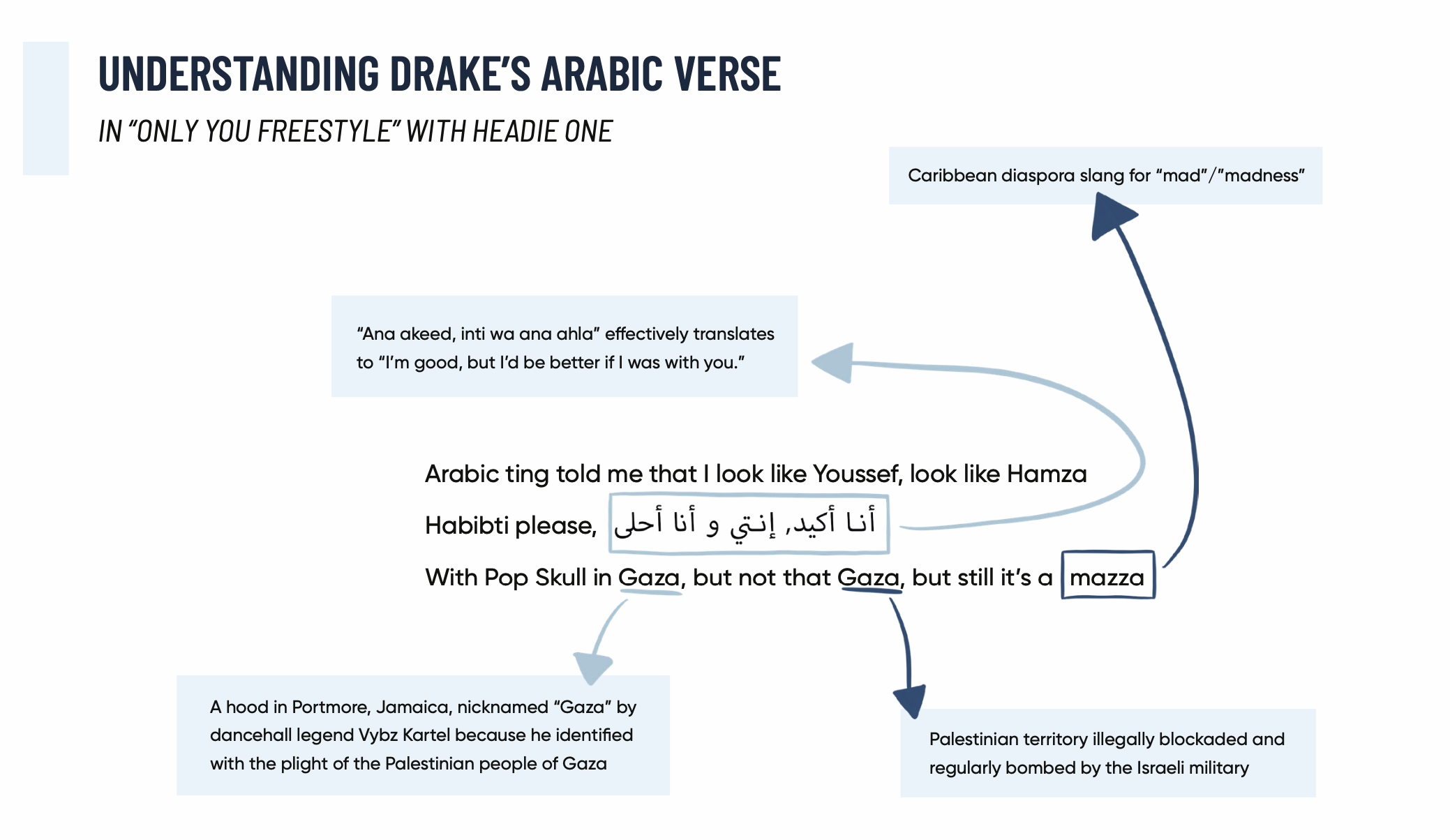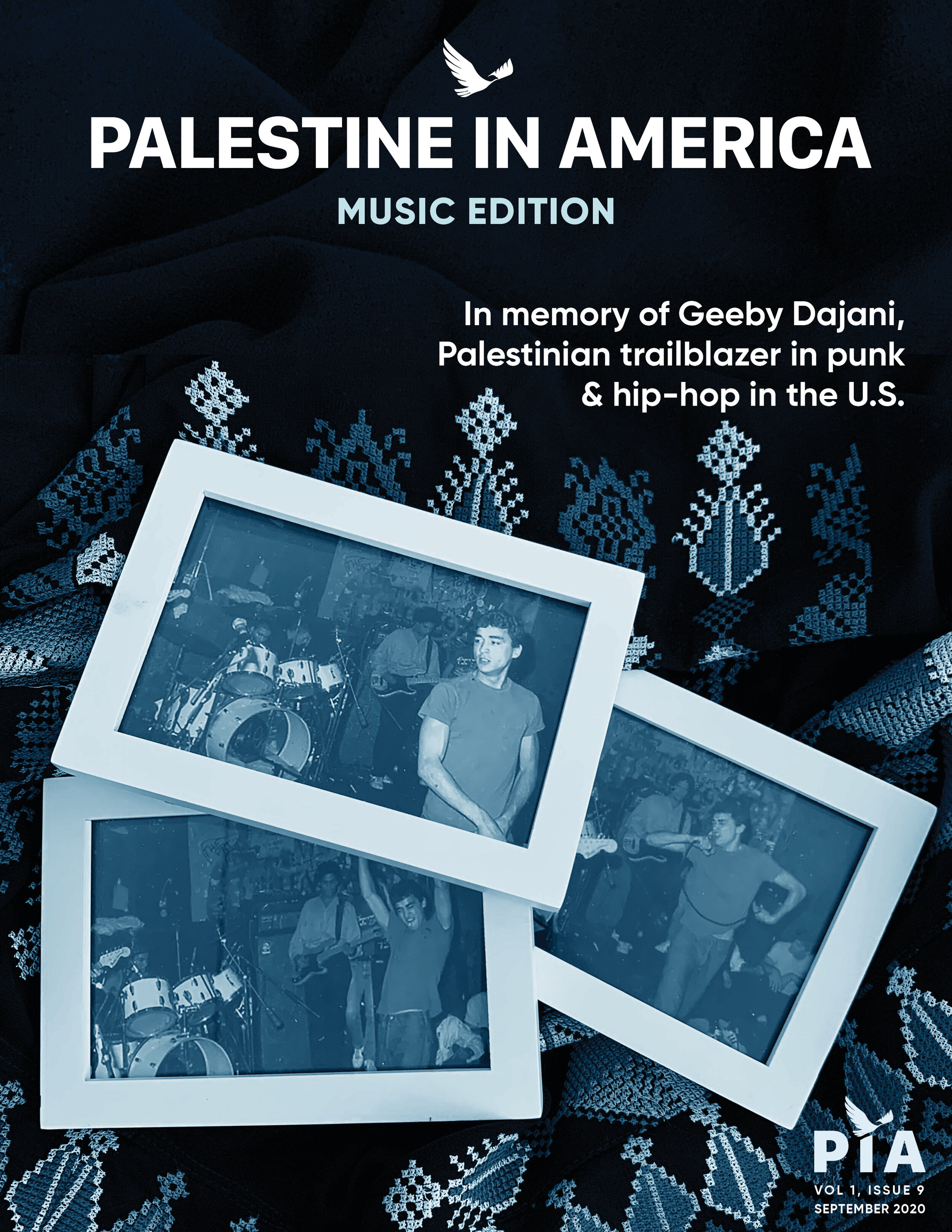A Palestinian you should know: Zach Matari
Zach Matari joined a Zoom call with Palestine in America’s editor in chief Nader Ihmoud to discuss his new song “Yalla”, his Tiktok success and his family. To listen to the full interview on Palestine in America’s podcast on Spotify, IGTV or YouTube.
Palestine in America: tell people a little bit about yourself. You're based in Jersey, but tell people who read Palestine in America, who might not know who you are.,tell them a little bit about yourself, please.
Zach Matari: All right. Palestinian American from New Jersey, a singer songwriter, a musician former, or whatever you want to call it. You know, I'm just trying to make the world a better place. One song at a time.
PiA: During quarantine right now, what have you been doing? What have you been working on? How's that been going for you?
ZM: So it's funny you ask this. So tick tock is been, uh, up there.
PiA: Yeah. You've been blowing up on tick tock,
ZM: tick tock has kept us busy, for sure. Um, we just, uh, we just hit over [100,000] marks and we're like so excited and I say we, because it's a whole family effort now.
PiA: Yeah. I can see that when I've been watching your tic-tacs, they're hilarious, I love it. I love the family aspect of it.
ZM: So, you know, yeah, man, it's just a fun thing and, you know, we started just for fun and, uh, and, uh, yeah, it kind of took on a life of its own, but, uh, you know, besides that obviously the music, um, coming out some new stuff soon, um, inshallah. So I'm really excited for that. And, um, and just trying to, you know, learn some new pickups, new crafts and pick up some new, um, I guess some skills,
PiA: Like what have you been working on?
ZM: random things, you know, like warak rolling. trying to try to perfect the Maklooba, you know what I mean? Like classic stuff. Um, and honestly I’ve been writing in a journal recently trying to better myself in every way I can. Um, and, uh, can you just trying to stay sane in this craziness, right?
PiA: Yeah. It's definitely weird, but it's funny that you say that. Cause during quarantine, my wife, she's a decent, she's a good cook, but during quarantine she perfected her Maklouba. She made me want warak dawali for the first time in her life. Cause she never made it before and it was great and I'm like at least some positive came out of it. Um, but speaking of your new music, I mean, how do you, how do you go about planning it? Do you even think about the marketing aspect of it before releasing the music or is it just whatever comes naturally?
ZM: There's no marketing strategy when you're writing it and you're getting inspired and uh, you know, we usually start with the chords and then it comes into melodies and then I always find that the best songs come from, like my subconscious. Um, so it's like whatever I'm like consciously thinking or feeling. And it just kind of like the words kind of come out, you know, like I, I kind of equate it to like, and it's funny, it's like, some people will equate, it's like giving birth, but like sometimes it's just, this is kind of like weird, but like, I just it's like I throw it up, you know what I mean? Like it just comes out, you know, and like, and I can't explain it, but when it happens, it's, um, it's like relieving, you know, it's like a, it's like a therapy and it's very therapeutic to just be able to get your stuff out. And you know, some people express themselves in so many different ways and I guess mine is just lyrics and melodies.
PiA: do you want to tell us about any new music coming out, any, you know, teasers for what's to come? Is there like an EP or just a single?
ZM: Yes, we have like a little, a little project coming out. Um, so we have this one song that I am really excited [about]. It's going to be the next release and it's, I guess I can, I guess I could tell you about it
PiA: Exclusive. No one knows it's coming,
ZM:But it's like a real fusion between the [Arabic] stuff and, and music that I grew up with and, you know, R & B music I grew up with and I've been trying to find like that perfect marriage of the two, you know, cause like, you know, we have, you know, as like Palestinian Americans, we have like this double identity.
PiA; Yeah.
ZM: So like for me, I just wanted to put both of those into a song and...we really spent so much time trying to figure out how we are going to do this? You know... how are we going to mix like debka with R&B.
I'm really excited. It's something different..I'm just trying to give people an Anthem to listen to, you know, something that people can be like, ‘damn, he's saying everything I'm feeling.’
PiA: Who’s inspiring you in the R&B game past and present?
ZM: I'm kind of like an old soul. So I always loved the greats, like, Stevie Wonder, Marvin Gaye, Michael Jackson, Ray, Charles. But I also grew up with a lot of rock music as well. So like Zeplin, uh, you know, Jimmy Hendrix, like a lot of these like sixties, seventies, rock bands and stuff like that. So I had like a really well balanced... Growing up. I had a crazy balance of like, you know, our music, disco music, rock, [Arabic] music. I'm also part Brazilian. So, you know, had that culture, You know, I've been really blessed to have been exposed to so many amazing artists and, uh, and you know, for me, it's just kind of like paying homage to those people that inspired me, you know?
PiA: So would you, would you say to people that are going to, like after this interview, go check out your catalog? Are they going to hear those kinds of sounds and your music from all those different people that you kind of just mentioned?
ZM: Yeah, for sure. Um, I think now more than ever, um, I'm really kind of, I guess, accepting, you know, like really accepting all these, um, cultural influences that I grew up with and kind of putting it out, you know, like got one point I was, it was, you know, as an, as you're an artist, any artist, and I'm sure you, you've probably experienced, experienced this even with your writing. You know what I mean? Like you evolve, you know, like you, you're not the same person. You're not, you're not writing the same pieces you were writing, you know, five years ago, three years ago or even a year ago. So like for me, you know, um, as I become, uh, you know, as like, uh, as I keep growing up, you know, like you just, you realize all these amazing influences and you just want to, you know, I want to expose people that have never listened to [Arabic] music to that. You know what I mean? Like I want to do it in a palatable way for people to be like, damn, that's so cool. And then I'd be like, yeah, well, you got to listen to Um Kulthoum...I'm not reinventing the wheel. I'm just, you know, adding color.
For the Full conversation head to YouTube or Spotify.




